How did this massive Lotto rollover happen?
- Published
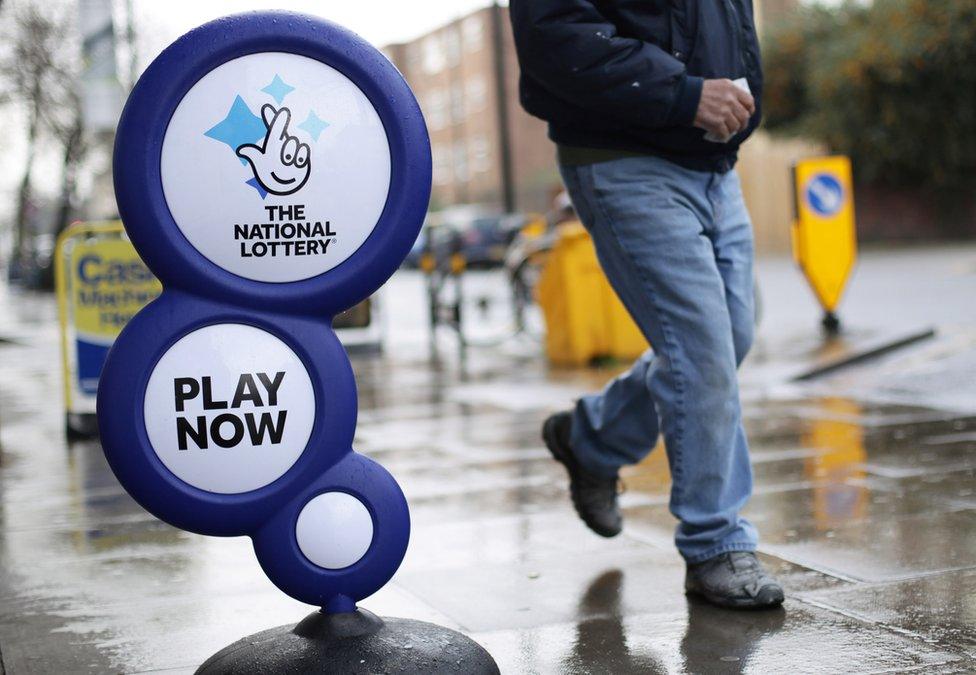
The jackpot in Saturday's Lotto is expected to rise to almost £60m - the biggest figure since it started 21 years ago. Changes to the number of balls in the draw have made a win statistically less likely, but what's actually happened since they were brought in?
It could be you, but most likely it won't be.
If anyone's lucky enough to guess six correct numbers in this Saturday's Lotto draw, their personal wealth could instantly increase by £60m - on a par with the fortune of Bee Gees singer Barry Gibb, according to the Sunday Times Rich List.
But hitting the jackpot's less likely than it once was. In October last year, Lotto operator Camelot added 10 extra balls to the draws taking place on Wednesdays and Saturdays, taking the number from 49 to 59.
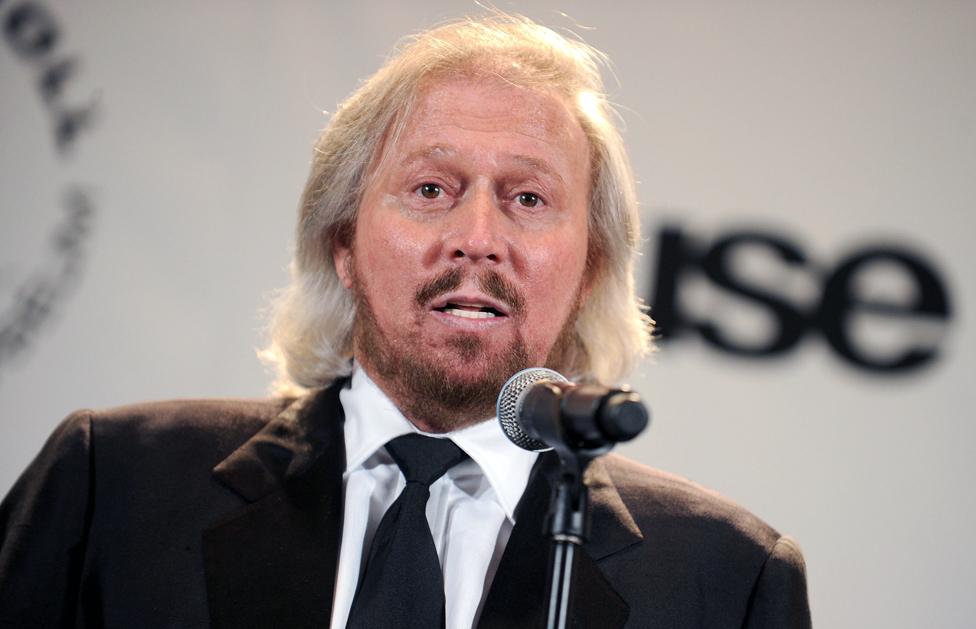
Saturday's winner could see their personal wealth rival that of Barry Gibb
This pushed out the odds of picking six correct numbers from one in 14 million to one in 45 million.
So naturally, the layman's assumption would be that they would be less likely to become a millionaire. One national newspaper called the change a "rip-off", but Camelot said it was making the game "more exciting".
It also made the promise that it would create at least one millionaire per draw - something not guaranteed before. It started the Lotto Millionaire Raffle. This assigned everyone buying a £2 Lotto ticket a separate raffle ticket, consisting of a colour and eight numbers - chosen by a computer, rather than the customer - to be entered in a separate draw.
So, how have the changes worked in practice?
Since the first amended-format draw took place on 10 October last year, there have been just four winners of the jackpot. That's over the course of 26 draws.
The jackpot prizes were £14.6m on 21 October, £4.3m on 24 October, £15.8m on 11 November and £4.3m on 14 November. None of these were shared.
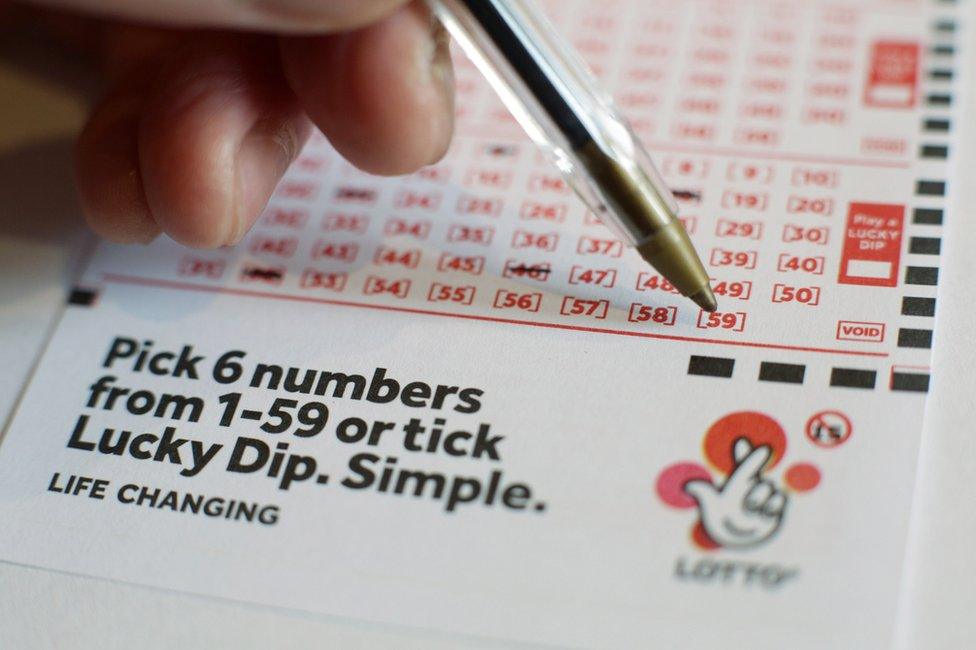
These winners, in addition to the 26 raffle winners, mean 30 people - or syndicates - have won at least £1m each in the draws since the October changes. Camelot also notes there have been 37 other £1m winners thanks to a number of one-off draws.
How does this compare with the equivalent period a year earlier?
In the 26 draws that took place from 11 October 2014 to 7 January 2015, there were 24 winners - some taking the full jackpot, some a share. The highest jackpot was £15m, shared five ways between contestants who had guessed five main balls plus the bonus ball correctly. This happened because, under the old system, the jackpot could only be rolled over a maximum of four times.
So, in this equivalent period the Lotto gave out 26 prizes worth £1m or more.
Therefore, four more millionaires have been created under the new system, but there have been 20 fewer jackpot wins.
Camelot says its combined changes - the extra balls and the Millionaire Raffle - mean the overall chance of becoming a millionaire have gone from one in 14 million to one in 10 million for every ticket you buy.
But, if you're now more likely to win a million pounds because of the raffle rather than the numbers you choose for Lotto itself, isn't the whole thing now very different?
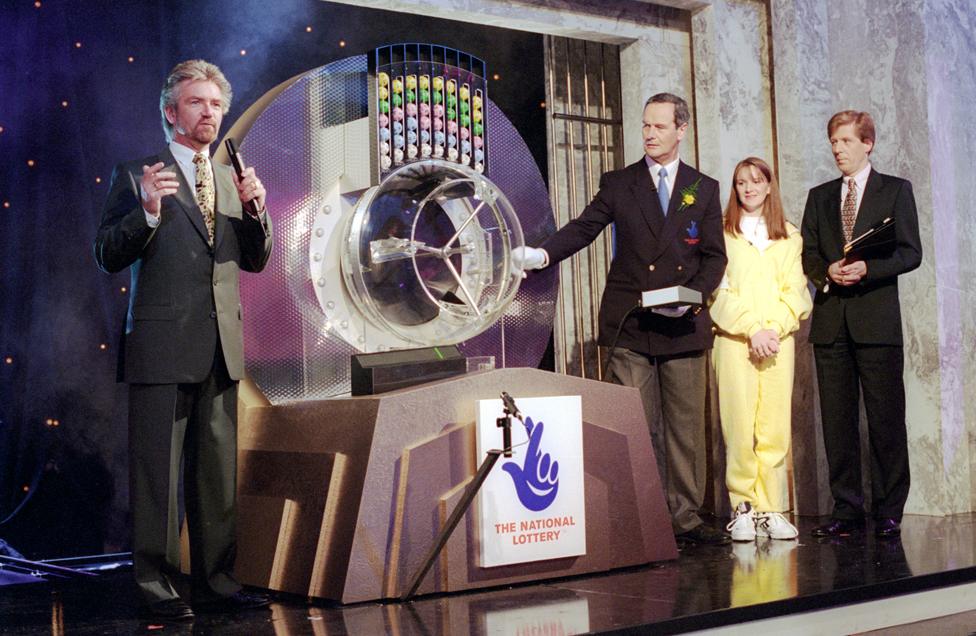
Noel Edmonds presenting the National Lottery in 1994
"I don't think the lottery has changed in nature because of this," says Katie Chicot, a mathematics lecturer at the Open University. "I think a good chunk of players use the Lucky Dip numbers anyway (random numbers selected for you)."
"I said when these changes came in that they'd increase the chance of rollovers, and that's happened," says Rob Mastrodomenico, of the Royal Statistical Society. He argues that the introduction of the raffle will be largely for the benefit of regular Lotto players, rather than those who buy tickets only when the jackpot inflates to huge proportions.
The odds of winning the raffle will vary from draw to draw based on the number of people buying tickets and therefore being in the raffle. If five million people buy tickets, each ticket has a one in five million chance of winning the £1m raffle prize - if 10 million do, the odds are one in 10 million.
"We don't ever really know the number of people entering, but it's likely to be lower when the prize is smaller," says Mastrodomenico. "I expect that, after the £60m jackpot is given away, the odds of winning the raffle will be far better next week, simply due to the fact fewer people will buy tickets and hence fewer will be in the raffle."
The current rollover stops on Saturday, with the jackpot having to be won by someone or shared.
This is because, under Camelot's amended rules, once the jackpot passes £50m - which it did for Wednesday's draw - it can only be rolled over one more time. If there is no winner, the prize goes to the person/people who have chosen five balls and the bonus ball. If no one gets this, the jackpot is shared among those who get five balls - and so on until the money is given out.
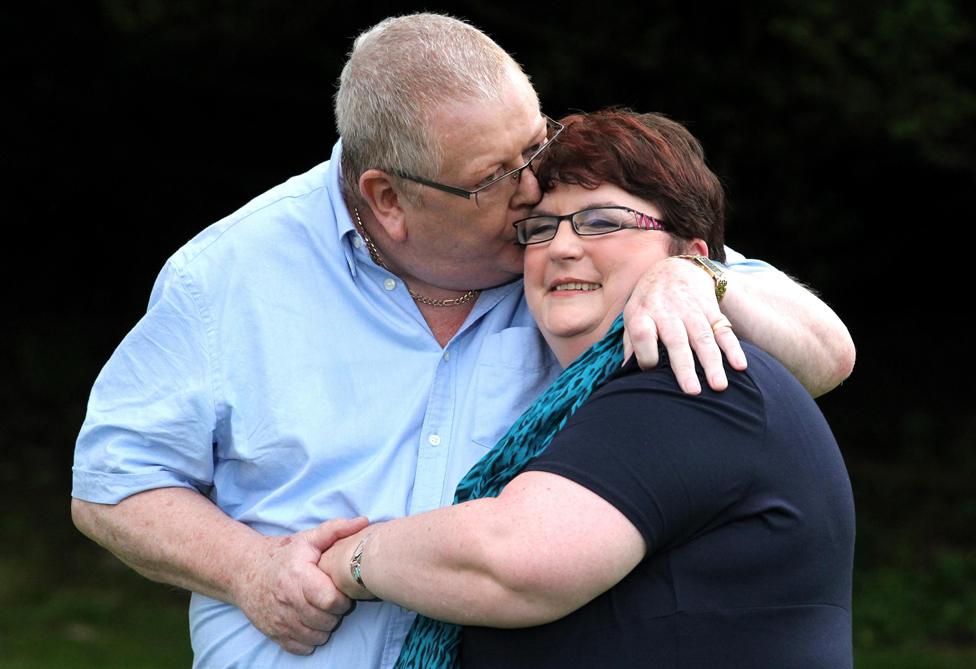
So Lotto winnings are effectively capped at a lower level than, say, EuroMillions (capped at 190 million euros), in which Colin and Chris Weir from Largs won £161m in 2011, external. The estimated jackpot for the US Powerball lottery is currently $675m (£464m).
Still, the Lotto prize - the largest in the National Lottery's 21-year history - has created huge interest. Its website crashed a couple of hours before Wednesday's draw, such was the demand for tickets.
"It's a PR dream for Camelot," says Pete Davies, director of RMS public relations. "It's word of mouth which is driving sales of tickets and this is the cheapest and most effective form of marketing there is.
"The fact there's been a huge decrease in the chance of winning the jackpot from about 14 million to one to 45 million, which has led to negative PR, makes no difference. The bigger the jackpot gets, the more people want to enter. This exponential growth drives people into a frenzy."
For those not winning or sharing the jackpot on Saturday, it's comforting to remember the words of grandfather John Baxter, who won £1m on EuroMillions in 2013. "I went to the supermarket and splashed out a tenner on new slippers," he said. "I couldn't think of anything else I really needed."
And anyone who guesses two numbers correctly under the reformed Lotto system gets to enter the next draw for free, and experience the excitement all over again.
Subscribe to the BBC News Magazine's email newsletter to get articles sent to your inbox.